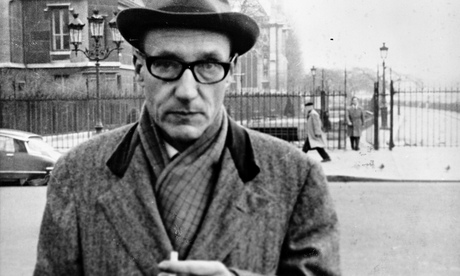
William S Burroughs, celebrated and dangerous author of Junkie and Naked Lunch (an early and unrecognised metaphor for the internet), believed that the written word was a virus. This virus had attained such stable symbiosis with the host that we failed to recognise it as such. In Burroughs’s reading, humanity is infected by language, which is a medium for both communication and control. Burroughs’s response was to “cut up” language itself, slicing through texts to produce new arrangements of words, and thus new liberated concepts and ways of breaking free of control.
Just as Burroughs’s cut-up technique seemed to predict the emergence of hypertext, so the word virus has been made radically real by the emergence of the same electronic networks. A German security researcher recently revealed a vulnerability in Amazon’s Kindle that would allow hackers to take control of customers’ accounts by injecting code into their devices through the language of the books themselves. This vulnerability, called cross-site scripting (XSS), can call malicious code from within the body of, say, the title of the book, which the Kindle processes automatically when the book is opened. This code can then report back usernames and passwords to the hacker.
Amazon fixed this particular issue last week, and XSS is a common problem, potentially affecting any connected devices or websites – banks are regular targets for XSS attacks. But there’s a certain piquancy in books themselves being the carrier for such language-based violence. The danger is greatest, of course, from pirated books, which are more likely to contain unknown and possibly dangerous pieces of code. This would have pleased Burroughs no end. In Cities of the Red Night, following Daniel Defoe, he described a pirate utopia, a zone of radical freedom where all goods were held in common – the very opposite of today’s tightly controlled corporate networks. “Many viruses,” noted Burroughs, “ultimately destroy the cells in which they are living.”

